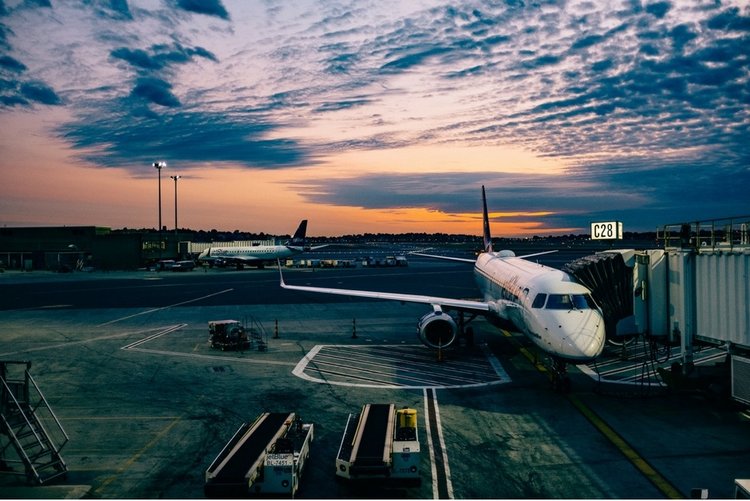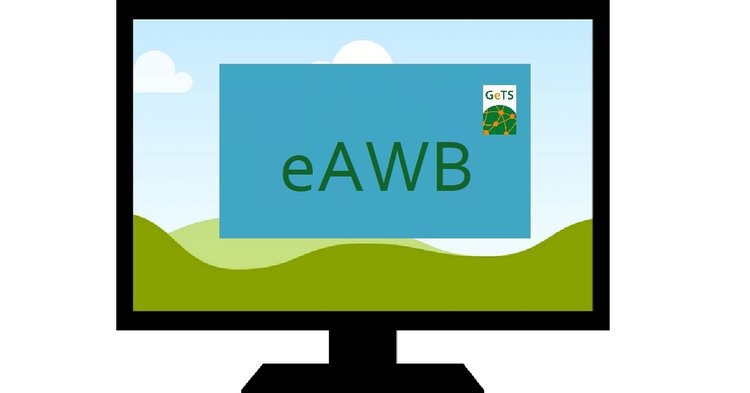How eAWB is Changing the Air Cargo Industry
Table of Contents:
Job Scam Alert:
This is to notify you that we have been alerted of job scams misusing the name of Global eTrade Services (GeTS). We would like to emphasize that there is no active, ongoing recruitment under the brand name of GeTS as we now operate under our parent company, CrimsonLogic. Please read the full disclaimer here.
Table of Contents:

The electronic air waybill (eAWB) is the digital version of a paper air waybill. The air waybill is one of the most critical documents in the air cargo industry, as it serves as the contract of carriage between the shipper or freight forwarder and the carrier or airline. The eAWB replaces the paper document and simplifies the air cargo process for carriers, forwarders, customs agencies and air cargo industry participants.
According to the International Air Transport Association (IATA), more than 50 percent of global air trade depends on paper-based processes, with over 7,800 tons of paper processed every year. A single shipment can involve up to 30 separate paper documents, and many of the processes still require human intervention. Paper documentation is time-consuming, labor intensive, error-prone and expensive, as it requires documents to be managed, stored and maintained for recordkeeping.
The eAWB eliminates the requirement for a paper AWB and speeds up processing through one-time data entry. With eAWB, there is no need to print, handle or archive paper documents, thus reducing the administrative and cost burden for businesses and regulatory agencies. The main goal of eAWB is to build and implement an end-to-end paperless transportation process for the air cargo industry, where paper documents are replaced with the exchange of electronic data.
The eAWB initiative was developed in 2008 and adopted by the IATA Cargo Services Conference in March 2009 as a recommended practice. eAWB is also endorsed by the International Federation of Freight Forwarders Associations (FIATA).

eAWB is part of the larger e-Freight program that aims to build an end-to-end paperless transportation process for air cargo through regulatory frameworks, modern electronic messages and high-quality data.
The initiative has been successfully implemented by many carriers, forwarders and governments around the world, but implementation continues to be sluggish.
In June 2018, the air cargo industry processed more than 2.1 million air waybills with 55 percent penetration on all legally feasible trade lanes (about 76 percent of all AWBs). As of October 2018, eAWB penetration is at 54.2 percent. IATA’s target for this year is 68 percent penetration. Adoption has been slow for many reasons. eAWB is not possible in all airports and all trade lanes due to regulatory limitations. In key airports where eAWB is already live, procedures are not harmonized among freight forwarders, airlines and ground handling agents.
In addition, many small and midsize forwarders lack the technical capability (like EDI systems) to transmit shipment data to airlines. Even large forwarders have local branches with legacy systems that are difficult to update. Forwarders dealing with multiple airlines also perceive the eAWB process as complex.
Despite these challenges, the eAWB and e-freight initiatives are introducing key changes in the industry. Carriers now require electronic air waybills instead of paper, and one airline (Lufthansa) has introduced a fee (starting at €1 and increasing to €12 from October 2018) per paper AWB filed on applicable trade lanes to encourage digital processing, improve communication and improve data quality. Freight forwarders also view the eAWB program positively, seeing it as an opportunity to improve processes and boost competitiveness.

eAWB Benefits for Carriers/Airlines
Reduced processing costs. Replacing paper documents with electronic filing eliminates or reduces costs associated with paper processing: materials, storage/archiving, transport and maintenance. No need to store reams of documents and maintain large spaces for paper.
Improved data accuracy. Paper air waybills require manual and repetitive data entry, which increases the risk of errors. With eAWB, data is entered once and re-populated when needed to reduce errors and duplicate entries. Parties can reuse customer data in an automated way and ensure that submitted information is accurate, consistent and complete.
Reduced cargo handling time. Massive delays due to missing or eligible paper eAWBs are sadly common. Because eAWB is digital, it is easy to read and the data is stored in the system. If the printout is lost, it’s easy to retrieve the backup and reprint.
No need to file paper AWB. Filing an eAWB means you no longer have to file a paper version. In areas where electronic processing is not possible due to the regulatory environment, a hard copy of the eAWB can be easily printed.
Real-time data access. eAWB data is stored in the system and can be accessed by all personnel from any location. Even if you’re out of the office and in another country, you can pull up the information from your ERP or other software.
Boost productivity. eAWB means reduced cycle time: faster filing, shipment processing and clearance. This frees up time for your employees to focus on other important activities. eAWB also comes with automatic notifications so you can respond faster to customs requests.
Improve customer service. eAWB allows carriers to alert freight forwarders proactively on document issues so they can quickly adjust and load the shipment as scheduled.
eAWB Benefits for Freight Forwarders

Improve productivity. eAWB simplifies paper handling and reduces downtimes. It eliminates time-consuming paperwork and the risk of losing paper documents. Freight forwarders no longer have to queue up and wait at carrier counters. For trade lanes and shipments that still require paper AWBs, eAWB information can be printed on demand. The eAWB can be a starting point for freight forwarders who plan to automate their operations further.
Reduce costs. eAWB helps reduce paper printing, storage, recycling, transport and maintenance costs. It also frees up valuable office space.
Improve customer service. eAWB helps freight forwarders improve customer service by eliminating missing documents, responding quickly to customer concerns, handling urgent shipments with ease, improving visibility, and facilitating shipment delivery. Digital messages can be sent directly to customers and in-house systems.
Improve data accuracy. Electronic processing eliminates errors and redundancies through validation, ensuring complete, accurate and consistent information throughout the supply chain. Electronic also means easy and on-demand information retrieval.
eAWB Benefits for Customs Agencies
Customs and regulatory agencies benefit from eAWB participation by automating processes and enabling information access before the actual arrival of the cargo. Data is entered only once to avoid mistakes and ensure integrity. eAWB systems can automatically detect inconsistencies and send/receive messages in real-time.
Like carriers and forwarders, customs agencies can save money by eliminating costs associated with paper handling, including archiving, maintenance, transport and manpower costs. Data can be easily shared with other government agencies through online portals.

The GeTS eAWB solution simplifies eAWB filing and helps air cargo industry participants optimize regulatory compliance and differentiate themselves from the competition cost-effectively. GeTS eAWB is part of our sustainable air freight service offerings. By eliminating paper-based AWB and data exchange, you can save time (faster processing) and money (reduced paper costs) while reducing your carbon footprint.
GeTS eAWB directly connects you to over 170 international airlines and provides various options to transmit e-AWB (either online submission/upload or host-to-host direct system integration with ERP/Freight Management System). eAWB filing is quick and simple: create the Master Air Waybill in the GeTS e-AWB system and enter additional information in the House Air Waybill (other relevant data is auto-populated). The system validates the documents and transmits them to the airline, which sends back freight status updates directly to you. Once the status shows ‘accepted’ or ‘ready for carriage,’ you are ready for takeoff.